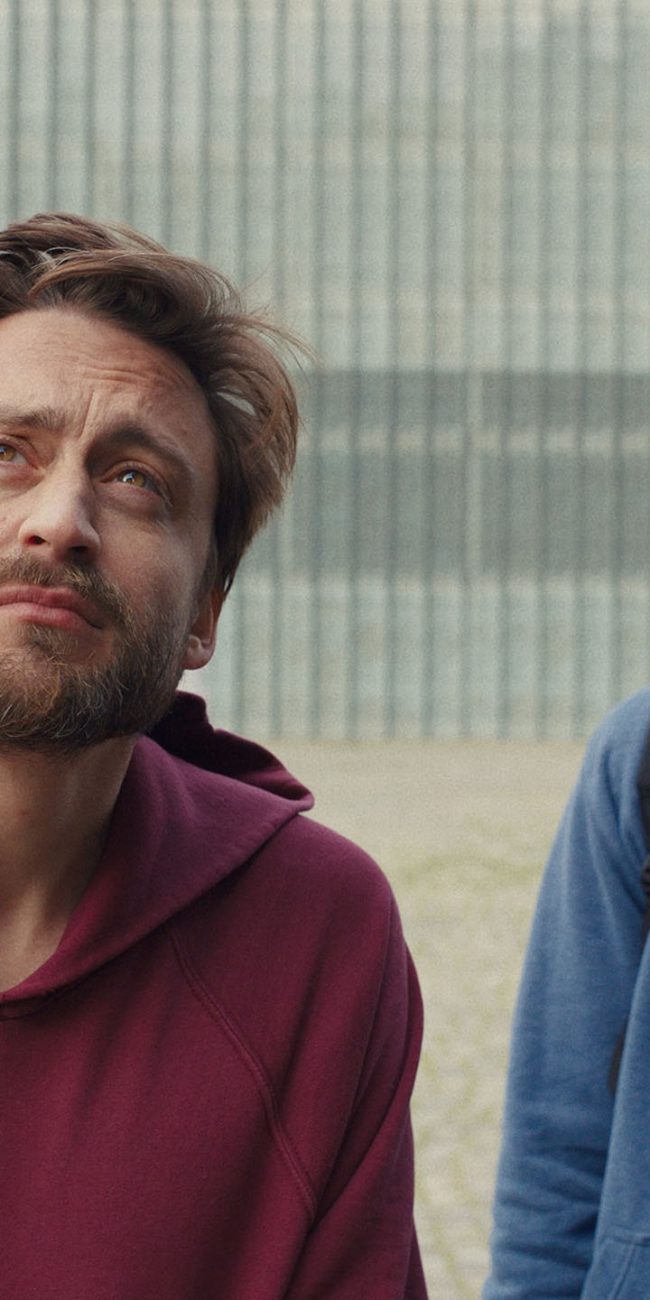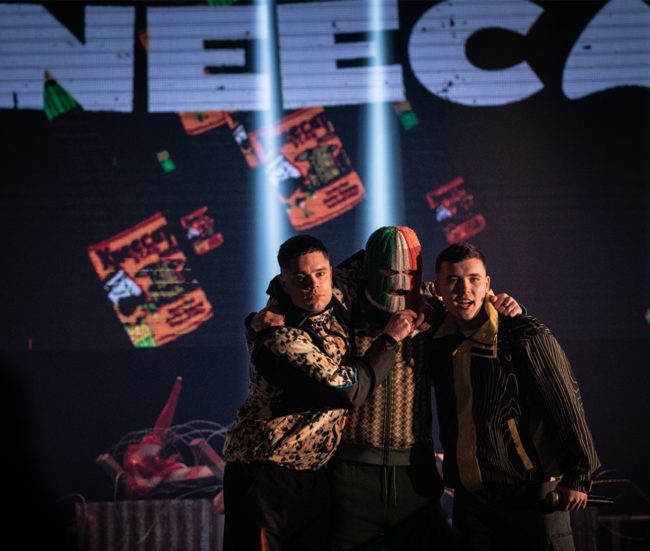A Conversation with Jules Rosskam (DESIRE LINES)
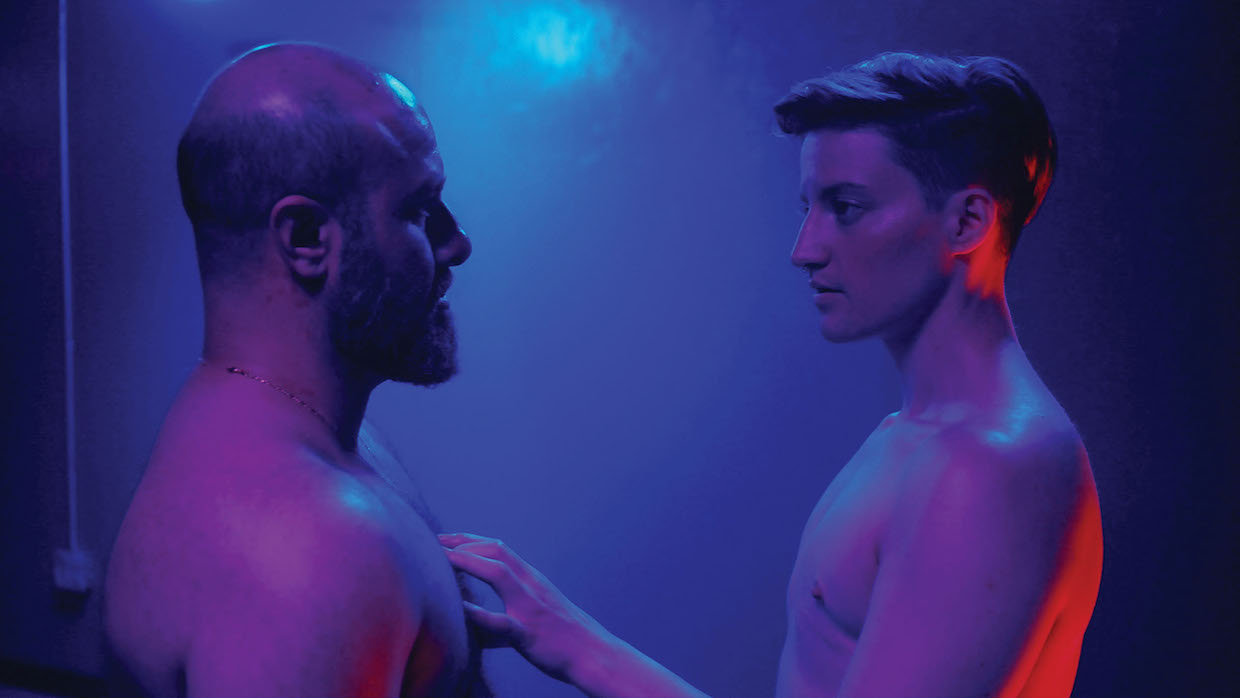
(The 2024 Sundance Film Festival runs January 18-28. Check out Bears Rebecca Fonté’s movie review of Desire Lines. Seen it? Join the conversation with HtN on our Letterboxd Page.)
Do you want to feel like you’re on the front line of America’s culture war? Try being trans. You wanna feel like you’re forcing a monumental perception switch going on in the queer community? Again, try being trans. Wanna feel like you’re still basically in the closet despite coming out years ago, try being transmasculine and attracted to gay men.
Desire Lines, the new film from director Jules Rosskam, aims to get the conversation started about something that has been sort of taboo in a community where you would think that nothing should be taboo. Part documentary, part narrative exploration, the film follows a transmasculine researcher who discovers how little he knows when he dives into the archives of a long-gone bathhouse. A young archivist guides him back to Lou Sullivan, possibly the first trans man to publicly identify as gay. Our modern understanding of sexuality and gender identity as distinct, unrelated concepts can be traced back to a series of interviews he gave because no one else had. Something Rosskam felt himself.
“Yeah, I mean, honestly, I have been thinking about making this film for 20 years,” says the director, “and by this film, I mean the sort of impetus for the whole film was looking at or exploring…I don’t know, this kind of underground narrative phenomenon that seems to happen for so many trans men, which is that when gender presentation shifts, desire seems to shift towards other men.” And this is something Rosskam had been discussing with other trans men for decades and had for some reason remained taboo. “I have just been watching it unfold in my communities for years,” he says “and honestly, I was waiting for someone else to make a film about it.”
I had a chance to sit down with Rosskam the week before Sundance to discuss his film, bathhouses, and strangely, architecture.
———
Jules Rosskam: I don’t make films to…I don’t have a predetermined thesis. I don’t have a goal. I have a question, a curiosity. I want to learn something about myself or about the world. I’m not trying to ever present some kind of conclusive, singular narrative about my community.
So in 2019, I put out a call for participants just via word of mouth and net my networks and was surprised by how many people responded so enthusiastically. And so I started interviewing trans men in 2019 around North America and was really surprised in those initial conversations by how many of them are talking about really positive, life affirming, body affirming experiences in gay bathhouses. And that’s what led me down the path toward bathhouses.
Hammer to Nail: And I love how the hallways of the archive became the bathhouse.
JR: Yeah, I mean, in my experience of doing research around bathhouses and being in bathhouses and thinking about cruising culture and then being in archives, I came to understand both of those spaces as spaces that hold histories of bodies and also foreclose histories of certain bodies. And that they then become spaces that people occupy because of desire, desire for sex or desire for knowledge. But desire is not that different. Whether you’re desiring sex or knowledge, you’re desiring something yet to be determined.
HtN: You’re filling a need or a hole that’s inside of you.
JR: Exactly, exactly. And so in the film, we work visually to overlap those spaces to get the audience to think about them as being similar or as being connected somehow.
HtN: I also think it’s interesting, your reasoning behind why you had to make the movie is very reflective of Lou Sullivan’s reasoning for why he wanted to sit down and do an interview. No one else is doing this. And I feel like if I don’t do it, no one else will.
JR: Yeah, absolutely. I think that’s been, for better or worse, in some ways, the driving force behind most of the films I’ve made about trans and queer experience. Or no one else is doing it in a way that feels authentic or feels liberatory or feels like it’s not from a cis lens or whatever. And that has been a huge driver behind a lot of the work that I’ve made.
HtN: So when you started working on this and you put the initial call, how much of what you were attempting to discover was in your ask? Were you saying, “I’m looking for people with bad experiences.” Or, “I’m looking for people who transitioned, then immediately started to change their sexuality.”
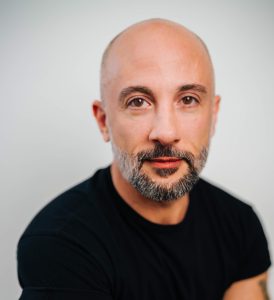
Filmmaker Jules Rosskam
JR: Yeah, no, initially I was looking for cis and trans men who were attracted to one another. And it was very hard to find, even though I know a lot of them personally. I’ve had personal experiences with them. I know there are many cis men out there who are interested in having sex with trans men and/or are actively having great sex with trans men or/and are in relationships. But it was incredibly difficult to find anyone who was willing to go on camera. And of course after the fact, all of these cis men will show up and be like, “Well, I would’ve done it. Why didn’t you ask me?” But I spent two years, I got two people to agree to being on camera, did interviews. They were positive, but ultimately, and I think this is fine, it really shifted toward just exploring trans men’s experiences. So in terms of the trans piece, I was specifically looking for trans men who were attracted to other men, whether that was trans or cis men. It was really about men who were interacting sexually and romantically with other masculine identified people.
HtN: Were you thinking that you might get couples coming in to talk together, or was it always two separate people?
JR: They were separate, though I actually did do an interview — one of the people, the trans man who’s in the film, his partner ended up, who’s a cis man, came with him to the interview not thinking that he would be on. And I was like, “Huh, well while you’re here, could we get …” And they did do an interview together. It didn’t end up in the film, but it was always kind of…the idea was separate.
HtN: Without drawing any negative attention to any one particular person, I’m curious as to what the cis men said to you when they said they didn’t want to be in the film. Did they give you reasoning? Is it just very uncomfortable to talk about?
JR: The main problem was I couldn’t find … not finding people who were actively responding to the call as opposed to fret being like, “I know you sleep with men. Why aren’t you doing …” There’s a lot of people who just don’t want to be on camera. I don’t want to be on camera. But the overarching vibe I got was this fear around perception in the gay male community. “If I sleep with trans men, I’m not gay. I’m afraid of being perceived as not gay.” But then also, and this was true for a couple of guys I spoke to on camera. There was a lot of anxiety about being perceived as being a fetishist.
I bring that up with some of the people on camera in the film where it’s like, what’s the line between being desired and being fetishized? And I think that’s hard. And I think there are genuinely people who are primarily attracted to trans people. There are trans people who are primarily attracted to trans people. There are cis people who are primarily…and there has to be a way to be able to allow people’s…that desire to exist outside of a space of fetishizing. But it’s hard. Yeah.
HtN: Yeah, I mean, that line is hard to actually find. And it’s also, I think different for each person in terms of how they feel about it. I really like the title of the film with that idea of lines, Desire Lines and drawing lines through things. Was that always the project’s title or did that come later?
JR: That’s a good question. I don’t remember exactly when I came up with the title, but it was very early on, and I mean, yes, it works absolutely, obviously in that way, but I was thinking about it from the architectural or city planning term where a desire line is a line, a way that people walk that isn’t the way they’re supposed to walk, and it ends up creating a new pathway through grass or something. You’ll see there’s sidewalks or something, and then there’s a path that gets worn down because people walk on it even though it’s not the way they’re supposed to walk. They call those desire lines. And I just love the idea that that transfers over in all of these other aspects of our lives. There are these structures that are meant to keep us walking a certain way, literally and figuratively. And people find their way outside of those lines all the time.
HtN: Yeah, it makes me think of the moment in the movie where they talk about the width of the corridors and how they were sometimes designed so that you had to turn and face somebody as you pass them.
JR: Exactly, exactly.
Hammer to Nail: So did you do all the interviews first and then build the narrative around that, or were you working on both kind of simultaneously?
RosJRkam: I finished I would say 90% of the interviews before we started building the narrative. And there are so many more interviews that we did that didn’t make it into the film, which is always sad.
HtN: I saw that they got credits though. That was nice.
JR: Yeah. My feeling always is like that’s literally the least you can do. It doesn’t cost any money to add a credit, and I want people to feel recognized for the work that they did. Everyone’s image is in the film. There’s a really quick montage where all of the guys we interviewed, their faces are on screen for a frame. Oh, yeah. So when I started working with Nate, the scriptwriter, he watched all of the interviews. And we talked about that as kind of a writer’s room. That these interviewees end up becoming the writer’s room because we are trying to fold in as much as what they’re saying into how we built the characters and the topics or themes that emerge in the narrative.
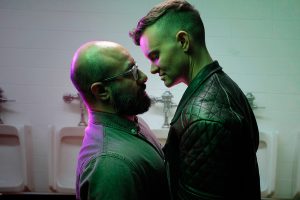
Jules Rosskam’s DESIRE LINES
HtN: Well, and you couldn’t avoid the fact that you were making this film in the shadow of the coronavirus, and then you have somebody whose research is coming across the AIDS virus and having those reflect each other.
JR: Absolutely. We were supposed to go into full production on the film in April of 2020. Then everything shut down. And that, I think it was sad, but also it changed the film in a lot of ways that I think are for the benefit. [That] full additional year of research is when I went down the bathhouse rabbit hole and I really got to learn a lot more about them as not just spaces where people were going for sex, but finding community. And they were activist hubs at the start of the HIV AIDS crisis in the United States.
There were some of the first places dispensing resources around HIV, doing STD testing. And here I am living through a plague, and I’m reading about this. And of course, there are parallels between the kinds of communities that were more susceptible to premature death from HIV and AIDS, and the same with Corona. I mean, they’re not the same thing, and there are some, of course, parallels to be drawn.
HtN: So, I run a queer film festival here in Austin, aGLIFF/Prism, and I was just talking to my executive director about this film. “I just saw this thing for Sundance it’s something we should play at our festival,” And I told him about it, and the first thing he said is, “That’s a film that everybody really needs to see. But I’m afraid that the people who really need to see it won’t see it, because they won’t see it for the same reason why they don’t want to talk about it or don’t want to have that relationship.” The cis gay men who are hesitant to interact, they’re going to steer clear of the message, and they won’t get it.
JR: Yeah, I mean, my response to that would be that’s what the responsibility of the film festival to create a space that specifically targets them and finds a way to bring them in. And I’ve done that with past films in terms of partnering with certain organizations, like a leather, a gay men’s leather group or something like that, where the group is saying, “We support this. This is important.” For instance, I had some folks when we were shooting in Chicago, the BIPOC men’s leather community, Onyx supported the film and helped us get people, and so I think it really requires extra work. You can’t just show a film and expect people to show up to it, sadly.
HtN: Especially if it’s a message that you find important enough to play at your festival that you want it to actually change something.
JR: Exactly. You have to go the extra mile and create those partnerships or invite those partnerships in. Smaller festivals who understand that actually sometimes need additional support to build that community or create a space for that, then you do have to just scaffold that in or find new ways to present it to an audience in a way that’s going to invite them. We’ve wanted to do speed dating for gay and cis men at these events, and we want to show the film in bathhouses. Really are thinking about how we can create those spaces to have those conversations.
HtN: I love that. Let’s do that. And how great is it to get to launch the film at a platform as big as Sundance. I’ve been making work for over 20 years, and this is definitely the biggest one. So that’s huge. And it’s hard to know what the quote unquote “outcome” of that will be. But I am very curious to see how it changes the trajectory, if it changes the trajectory of how this film will be received and where it will go.
And I know a number of the interviewees who are in the film, they’re similar to me. They’re excited and they’re like, “Wow, had I known that this was going to get such a huge platform, I don’t know if I would’ve done it.” Or, “I am so happy it’s happening. And oh my God. Also, I’d never imagined that the things I said were going to be seen on this wide of a scale.” And obviously a lot of that is being said and felt within the context of how dangerous it is to be trans.
Desire Lines world premiered at Sundance 2024, Transmascs are currently appearing on dating apps globally.
– Bears Rebecca Fonté (@BearsFonte)
2024 Sundance Film Festival; Jules Rosskam; Desire Lines








